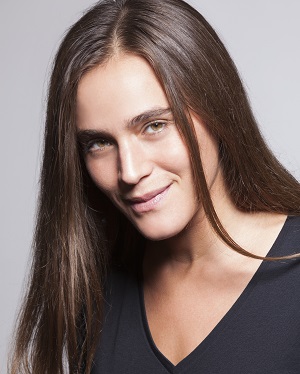
An Open Letter to Albert Goldbarth
Contributor’s Marginalia: Jessica Jacobs responding to Albert Goldbarth’s “A Standard Unit of Measurement”
Dear Albert Goldbarth,
I hope you don’t mind me asking: your poem, how did it happen? Was the sky outside split by light, drawing your eyes up from your typewriter—the anti-computer you mention so often in interviews. I imagine its heavy, particular keys, imagine it a time machine programmed to take you wherever your thoughts might wander but connected to no network, no person beyond you. But back to your poem: is the repetition of “six heartbeats” just because that moment was startling enough to have you count the heartbeats clanging your chest (one-Mississippi, two, three, four, five, six) until the panes finally flexed with the rumble of thunder? And, in the trailing quiet, did you begin to type, “Lightning. Then…”?
Or was it a clear day and the only storm was the one in your mind, which you then conjured onto the page and gave the falsely innocuous title “A Standard Unit of Measurement”?
I hope it doesn’t bother you, Albert, as we’ve never met and I’ve somehow only recently found my way to your astonishing body of work, but I also read “six heartbeats” here as what the Torah captures in its beginning. The first span of creation, of separations that helped us know darkness from light, water from land, ourselves from the earth from which we were formed. How long were each of those six days? The duration of a divine heartbeat?
Divide six counts by five and you know your particular lightning bolt struck just over a mile away. This, according to a Science for Curious Kids site, because children and poets like you ask all the best questions.
Whatever its origin story, I’m grateful this poem allows me to think alongside you. To watch you go from meteorological observation to our mistaken dichotomy of thunder and lightning, which masks the fact “they’re one, of course, at two speeds.”
The internet you eschew also informs me lightning is the result of static electricity that builds in clouds from the friction between ice crystals and water droplets—all that light and noise from two forms of the same element that have also forgotten they were once one. And the overflow of that energy, the electrical waterfall that is lightning, superheats the air it passes through, creating shockwaves we’ve come to call thunder.
This rush of electricity and the sound of its journey are made to masquerade as two by some of the universe’s fundamental laws: the speed of light is faster than the speed of sound (“one, of course, at two speeds”). Just as you note that the stories we tell around “Why Death / or Why Creation are really only stories // about a single state of existence / at two velocities.” Yet most of us spend our lives working to pretend that creation and death are not just separate but entirely unrelated. Denying that we begin dying the moment we are born. That creation is soil sown with mortal seeds, just as death composts us back to earth, making us material of future creation.
And in the breath that separates what is far from separate: “The immediate glory (or pain) of love.” Did you italicize this last stanza, Albert, to indicate you were quoting an immutable truth?
Since reading your poem, I’ve been carrying this truth with me in the hollow of my chest. It’s a reminder that no matter whether it was yesterday, a long gray day of intermittent rain shot through with random sunshine (no lighting though), or today, when the sky has once again found its blue and squirrels chitter from the branches of a Black Walnut tree, that my time here is only six heartbeats—a unit of measurement whose exact magnitude will stay forever just beyond my understanding. And all I can do is follow your lead and love the world enough to search out its facts and wonders. That, when the energy builds to overflowing, I should raise my voice to sing in the chorus with yours, with the voices whose notes still echo from long before us and those that will continue on long after we’re gone.
Six heartbeats, six divine days, bounded by the unspoken seventh, the Sabbath day of silence and all that rests beyond the grasp of even our finest, most reaching words.
with gratitude,
Jessica Jacobs
